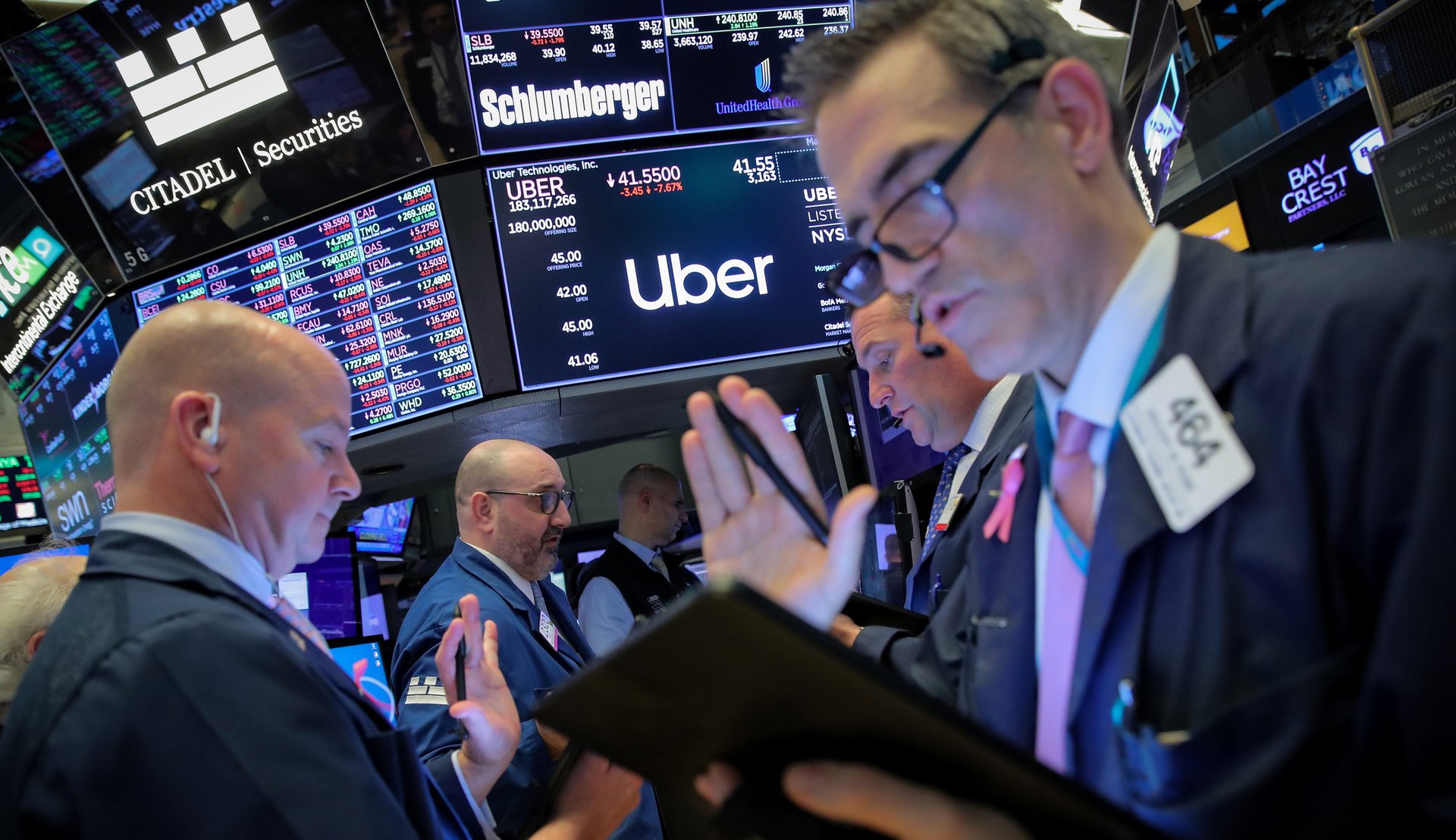Uber hasn’t been worth this little since July 2015
“Obviously our stock did not trade as well as we had hoped post-IPO,” Uber CEO Dara Khosrowshahi wrote in a note to staff yesterday. After falling 7.6% from its $45 IPO price on its first day of trading, Uber tumbled another 11% yesterday, closing at $37.10.


“Obviously our stock did not trade as well as we had hoped post-IPO,” Uber CEO Dara Khosrowshahi wrote in a note to staff yesterday. After falling 7.6% from its $45 IPO price on its first day of trading, Uber tumbled another 11% yesterday, closing at $37.10.
It was a brutal first two days of trading for the ride-hail company, which went public on Friday, May 10 in a market rattled by the escalating US-China trade war. That spat intensified over the weekend, pushing the market sharply lower yesterday, with the S&P 500 and Dow indexes shedding 2.4% and the technology-heavy Nasdaq losing 3.4%.
Even in tough conditions, though, Uber’s early losses look bad. As of the market close on May 13, the company had a market capitalization of $62.2 billon. Uber hasn’t been worth that little—at least according to private investors—since July 2015, when it raised $1 billion at a $51 billion valuation. (The company’s subsequent financing round, raising $5.6 billion in May 2016, valued it at $66 billion.)
Before Uber went public, private investors valued the company at $72 billion. Khosrowshahi and other Uber executives reportedly have big bonuses riding on the company reaching a market value of $120 billion.
In his note to staff, Khosrowshahi urged employees to focus on Uber’s long-term prospects. “Remember that the Facebook and Amazon post-IPO trading was incredibly difficult for those companies,” he wrote. “And look at how they have delivered since.”
While it’s true that Facebook and Amazon initially struggled to find their footing in public markets, so far Uber is performing worse. After two days of trading, Uber’s stock is 18% below its IPO price. At the same point in time, Facebook was 10% off its IPO price, and Amazon up 15% on its initial price.
Uber is also underperforming the other major technology companies that have gone public this year. After two days of trading, pan-African e-commerce conglomerate Jumia was up 120% from its IPO price, video-conferencing company Zoom had gained 72%, and design platform Pinterest was up 28%. Even Uber competitor Lyft, which has had a rough ride in public markets, was down just 4% relative to its IPO price after two days of trading.
It’s still early for all these newly public companies, but Uber’s weak debut likely makes investors nervous, especially those who paid $45 a share or more to buy in. It also doesn’t help that rival Lyft, an obvious comparison to Uber, has only slid lower since its March 29 debut, with shares now trading about 33% below their $72 IPO price. For once, Uber might want to root for the competition.